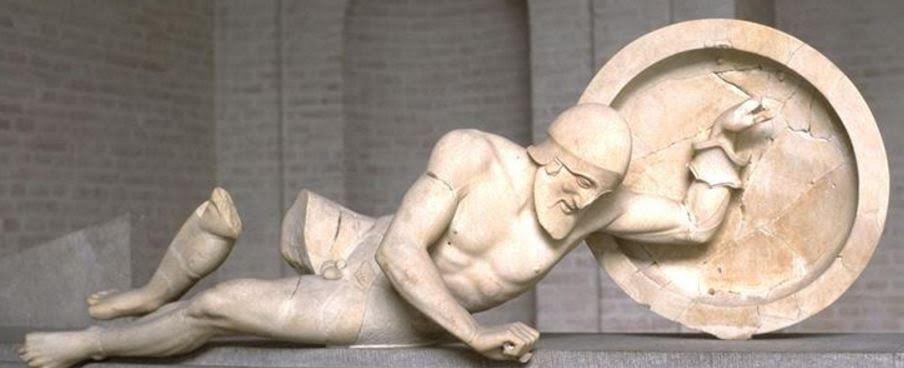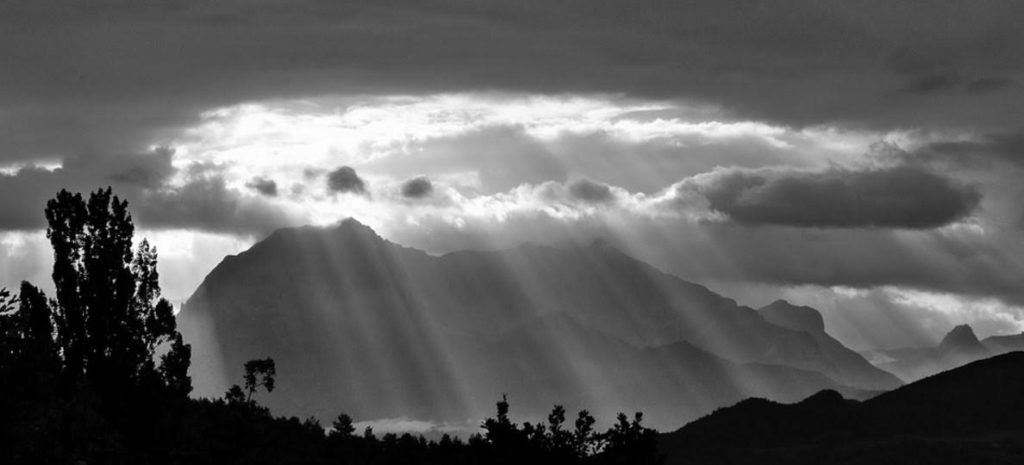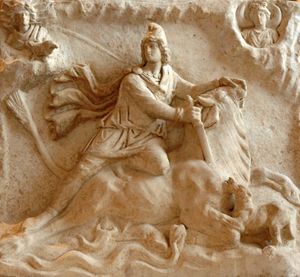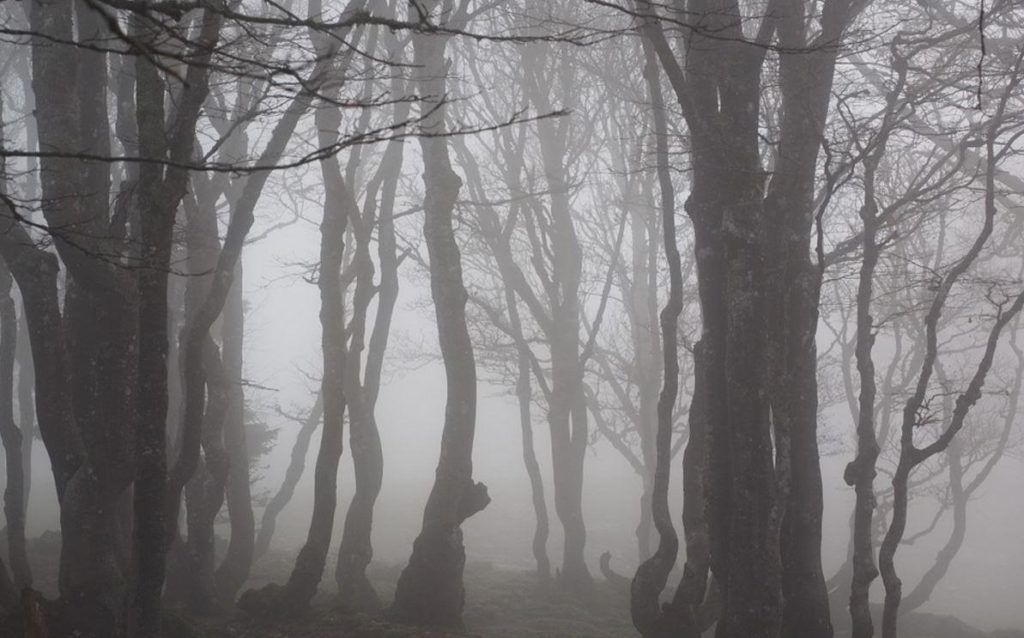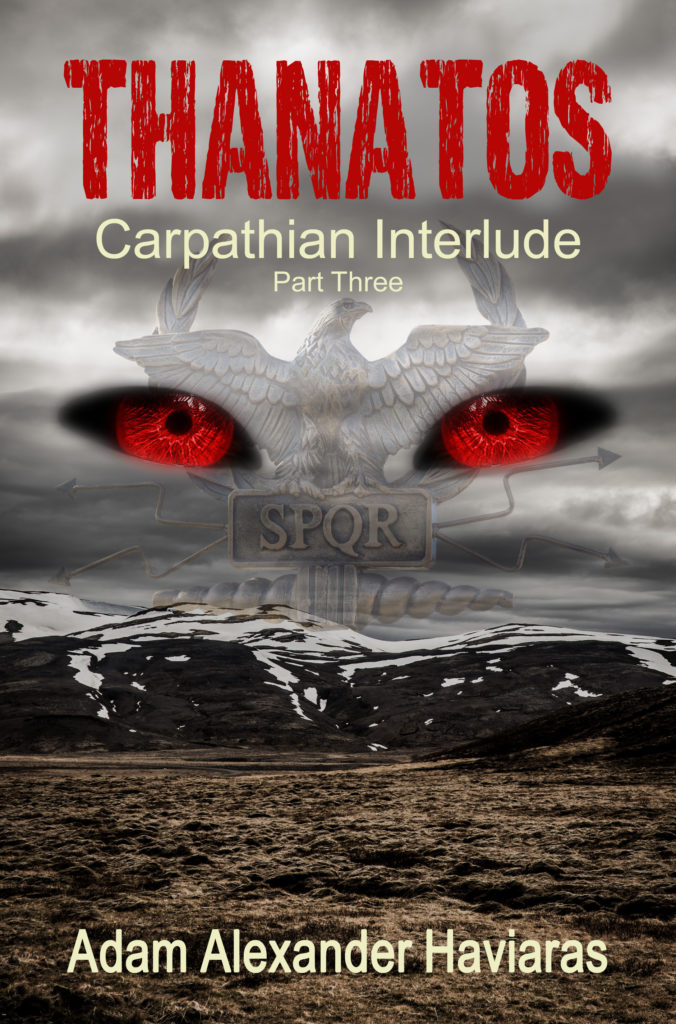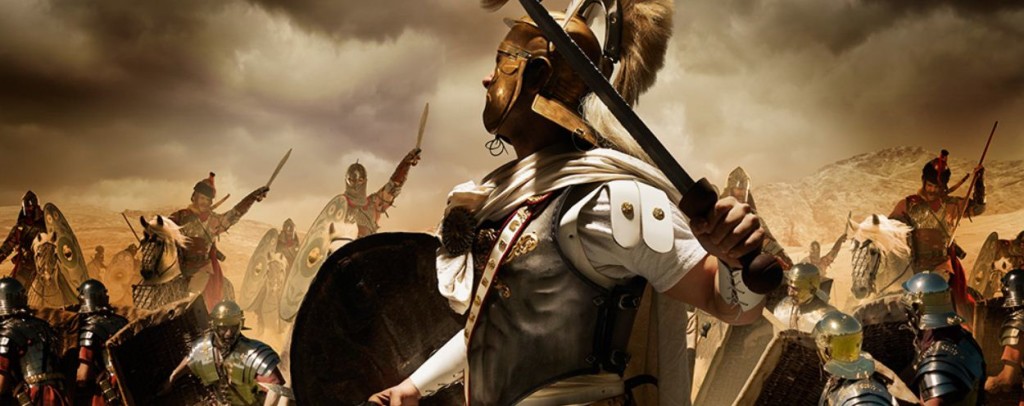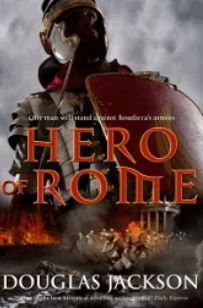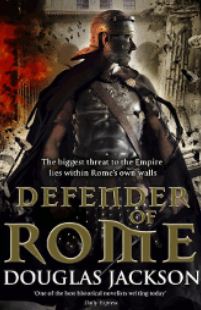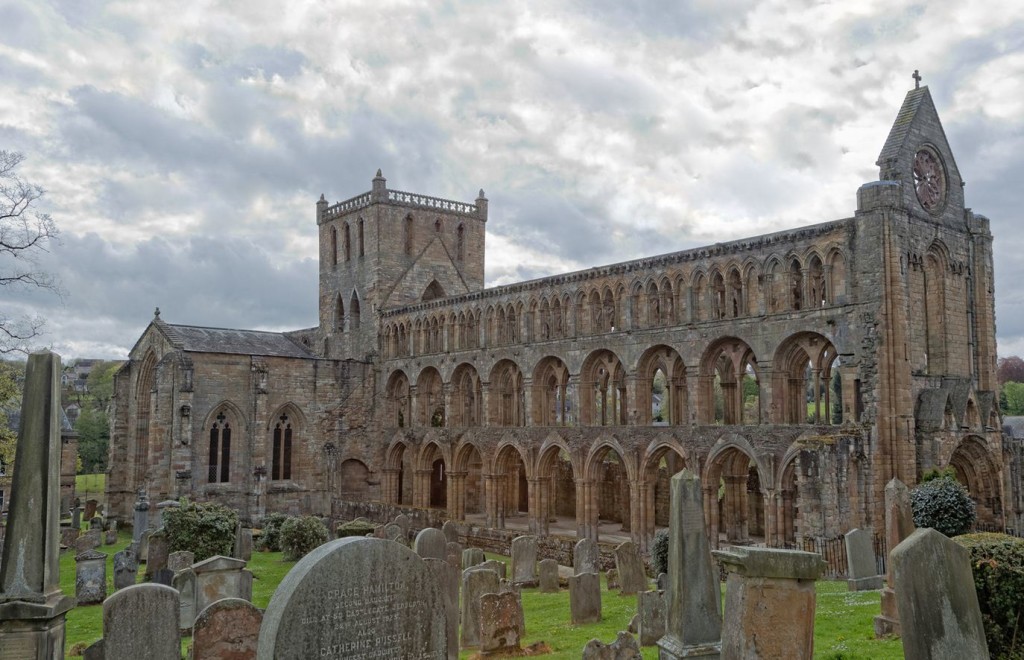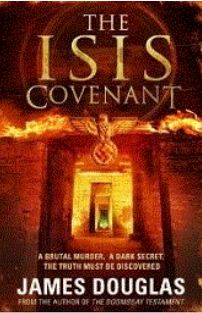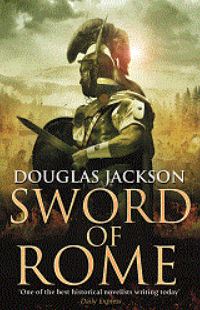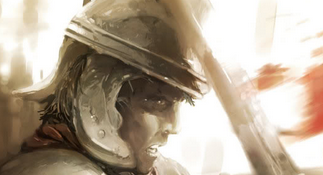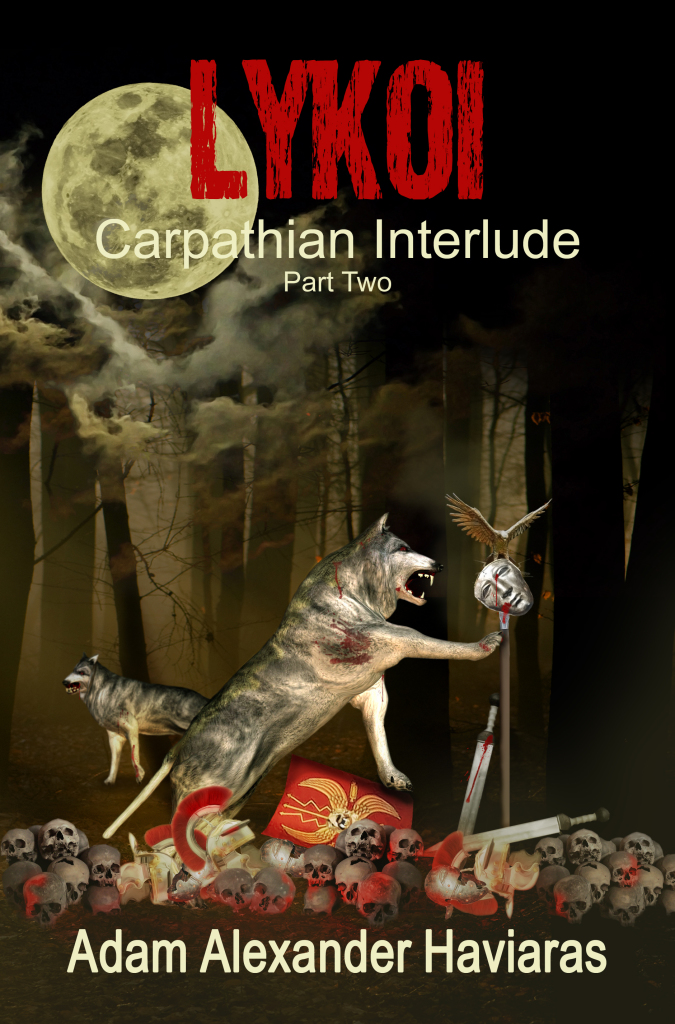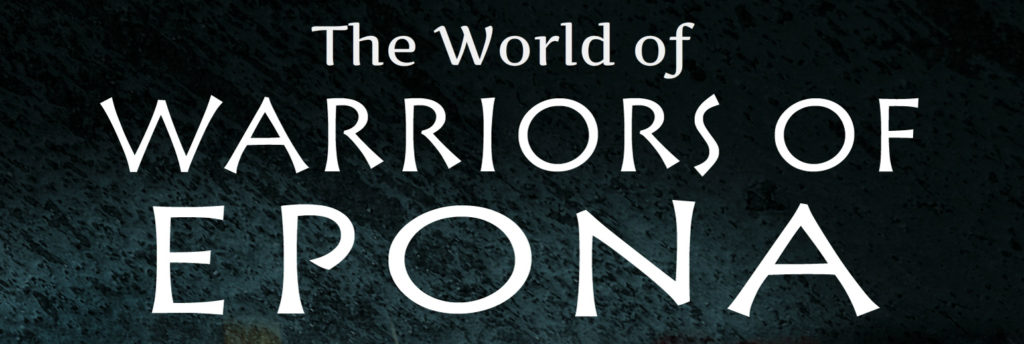
The Eagles and Dragons saga is marching on, and so I’m very excited to begin a new series of blogs posts based on the newest release, Warriors of Epona.
Writing the Eagles and Dragons series has been a fantastic and exciting adventure thus far, for me and for the characters inhabiting this world. And with each new book, I’ve tried to explore new realms, new areas of thought and belief, and to plumb new depths of the human experience.
In Warriors of Epona Lucius Metellus Anguis’ journey leads him down a very different path to a place that is both beautiful and terrifying.
I do hope that you enjoy the next phase in this adventure.
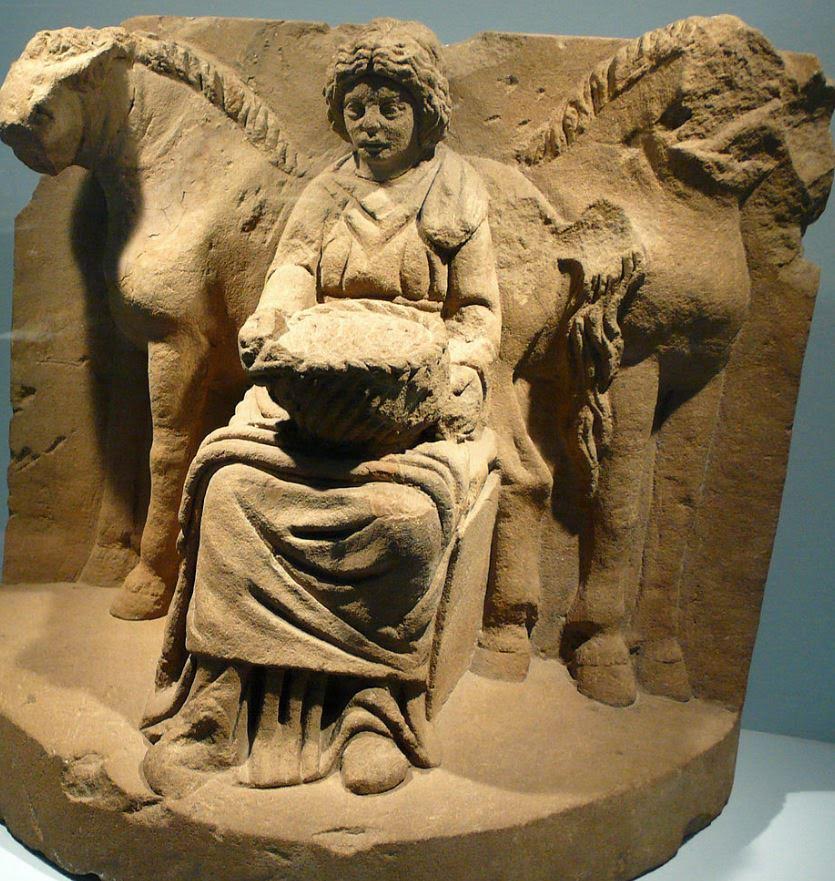
Epona and horses (Wikimedia Commons)
In Part I of The World of Warriors of Epona, I want to introduce you to a new character in the series, a goddess.
In Warriors of Epona Lucius has started the next phase of his military career as the praefectus of a Sarmatian cavalry ala. To read more about the Sarmatians, CLICK HERE.
Originally, Epona was a Celtic horse goddess, and some believe that her worship spread out from Alesia, in Gaul, at the time of Caesar’s conflict there with the Celtic war leader, Vercingetorix.
The interesting thing about Epona is that she came to be widely worshiped by Romans as well. This was a truly unique circumstance for a Celtic goddess, for worship of such deities was usually local in nature, and then they were often combined with a Roman god (for example the worship of Sulis Minerva at Bath).
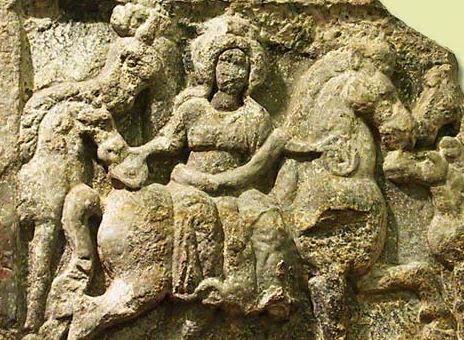
Epona riding side saddle
However, the worship of Epona spread across the Roman Empire, especially among cavalrymen, and dedicatory inscriptions and altars to her have been found largely along the Rhine and Danube frontiers, but also in Gaul and Britannia.
She was also associated with plenty, and some of the few representations that survive show her holding sheaves of wheat. She was also associated with apples.
The Roman festival of Epona was celebrated on December 18th.
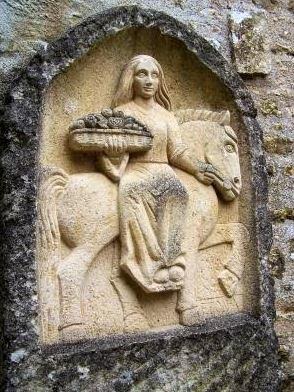
I have always been drawn to Epona since I read the Mabinogion, the compilation of early Welsh tales, or ‘Triads’. In the tale Pwyll, Prince of Dyfed, the otherworldly woman, Rhiannon, is a reflection of the Goddess Epona, riding a brilliant white horse, followed by three white, red-eared hounds, and of course the birds of Rhiannon.
In Warriors of Epona, I chose to portray the goddess, who is Lucius’ new protector, as Rhiannon is portrayed in the Welsh Triads. If you have never read Pwyll, Prince of Dyfed, I highly recommend it as it beautifully portrays some of the strongest archetypes of ancient Celtic myth.
Here is an excerpt from Pwyll, Prince of Dyfed:
Once upon a time he [i.e. Pwyll] was in Arbeth, a chief court of his, with a feast laid out and great hosts of men all around him. After the first course, Pwyll got up to go for a walk and made for the top of a mound which was above the court and was called Gorsedd Arbeth.
‘Lord’, said one of the court ‘it is a peculiarity of the mound that whatever high-born man might sit upon it, he will not go away without one of two things: either wounds or blows, or his witnessing a marvel.’
‘I have no fear of wounds or blows in the midst of this host. A marvel, however, I would be glad to see. I will go,’ he continued ‘ and sit on this mound’. And he went to sit on the mound.
As they were seated, they could see a woman on a large stately pale-white horse, a garment of shining gold brocaded silk about her, making her way along the track which went past the mound. The horse had an even, leisurely pace; and she was drawing level with the mound it seemed to all those who were watching her.
‘Men’ said Pwyll ‘ is there any of you who recognizes that lady on horseback over there?’
‘There is not, my Lord,’ they replied.
‘One [of you] go up to her to find out who she is’ he said.
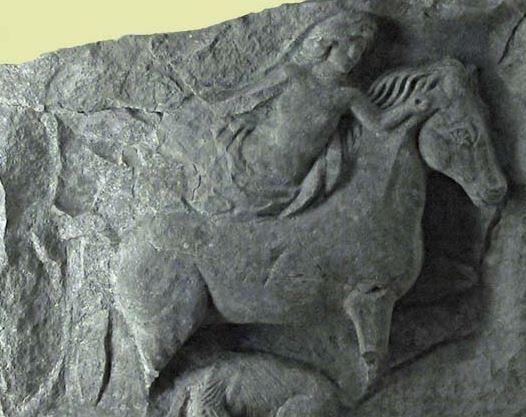
One [man] got up, but when he came onto the road to meet her, she had [already] gone past. He went after her as fast as he was able to on foot, but the greater was his speed, the further away from him she became. When he could see that following her was to no avail, he returned to Pwyll and said to him:
‘Lord, it is no use anyone in the world [trying] to follow her on foot.’
‘Aye,’ said Pwyll ‘go back to the court, and take the fastest horse that you know, and go after her.’
He took the horse and off he went. He got to smooth open country, and he began to set his spurs to the horse; but the more he struck the horse, the further away she became. Yet she still had the same pace with which she had begun. His horse flagged, and when he noticed his horse’s slackening pace, he returned to Pwyll.
‘Lord,’ said he ‘it is no use following that Lady over there. I haven’t known any horse in the land faster than this one, but [even on this] following her was to no avail.’
‘Aye’ said Pwyll ‘there is some kind of a magical meaning to this. Let us go [back] to the court.’
[So] they went [back] to the court, and passed the rest of that day. The next day they arose and that [too] passed until it was the hour to eat. After the first meal [Pwyll spoke thus]:
‘We will go – the company that we were yesterday – to the top of the mound. And you,’ he said to one his retainers ‘take with you the fastest horse you know in the field.’ And that the retainer did. They [then] made for the mound with the horse.
And, as they were sitting, they could see the woman on the same horse, with the same apparel about her, coming up the same road.
‘Look!’ said Pwyll ‘here comes the lady on horseback. Be ready, boy, to find out who she is.’
‘Lord, that I’ll do gladly.’
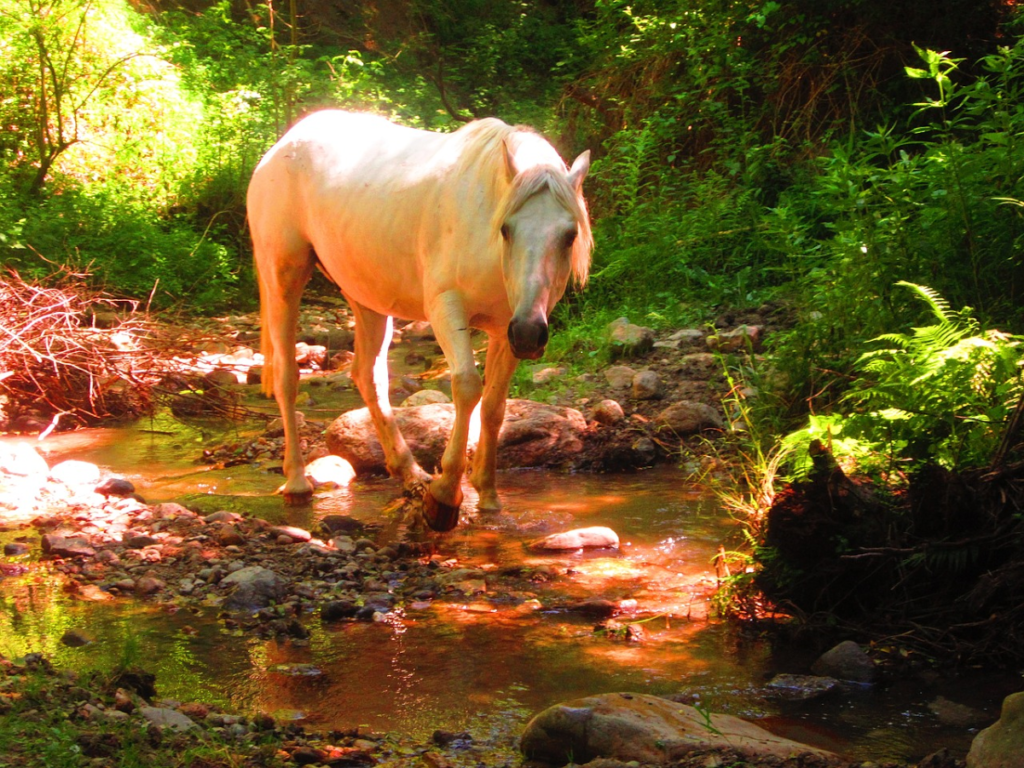
Thereupon, the lady on horseback drew level. The boy then mounted his horse, but before he had [even] settled in the saddle, she had already gone past, and there was a distance between them. Her pace was no different from the day before. He [too] put his pace at an amble, supposing as he did that however slowly his horse went, he might be able to overtake her. But it was no use. He loosed his at the reins, but got no nearer than if he had been on foot; and the more he beat his horse, the further away she became. [Yet] her pace was no greater than before. Since he saw it was useless [trying] to follow her, he returned, coming back to Pwyll.
‘Lord,’ said he ‘there is no more this horse can do than what you have seen.’
‘[So] I saw’ replied [Pwyll] ‘ its pointless anyone pursuing her. But between me and God,’ he continued ‘she has a message for someone on this plain, if obstinacy would [only] allow her to say it. Let us go back to the court.’
They came [back] to the court and spent the evening in song and carousel as they pleased.
The next morning, they passed the day until it was the hour to eat. When they had finished the meal Pwyll announced ‘Where is that group of us that went up on the mound yesterday and the day before?’
‘Here [we are], my Lord’ said they.
‘Let us go [then],’ said he ‘to sit upon the mound. And you’ he said to his stable-boy ‘saddle my horse well and bring him to the path, and bring my spurs with you.’ And that the boy did.
They came to sit on the mound. They had hardly been there any time before they caught sight of the lady on horseback, coming along the same path, with the same apparel, at the same pace.
‘Ah, boy, I can see the lady on horseback coming!’ said Pwyll ‘Bring me my horse.’
Pwyll mounted his horse, and no sooner than he had done so, she had passed him by. He turned after her, and let his lively horse prance at its own pace. He guessed that he would catch her up on the second or third bound. [But] no nearer did he get to her than [any of the times] before. He spurred on the horse as fast as it could go. But he saw it was useless following her [in this way].
Then Pwyll spoke: ‘Maiden,’ he said ‘for the sake of the man you love the best, wait for me!’
‘Gladly I’ll wait’ said she ‘but it might have been better for the horse if you had asked me a good while before.’
The maiden stopped and waited and drew aside the part of her headdress that was there to cover her face. She looked him in the eye, initiating conversation with him.
‘Lady,’ he asked ‘where are you from? And where are you going?’
‘Going about my business’ said she ‘and glad I am to see you.’
‘And you are also welcome to me,’ said he.
And he realized at that moment the faces of every woman and girl he had ever seen were dull in comparison to her face.
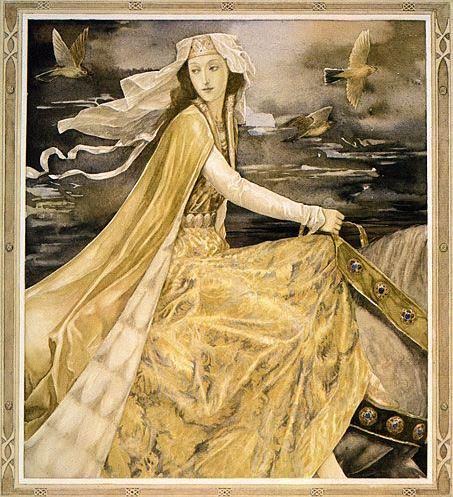
Rhiannon – Illustrated by Alan Lee
The first time I read this passage, it was like a spell was cast over me, just as Rhiannon’s beauty overcame Pwyll in the tale.
Epona, in the guise of this otherworldly woman, has been in my thoughts ever since, and so beautiful goddess of horses has finally come into the Eagles and Dragons story as a mother and protector of Lucius and his elite group of horse warriors.
They will certainly need her in the battles to come…
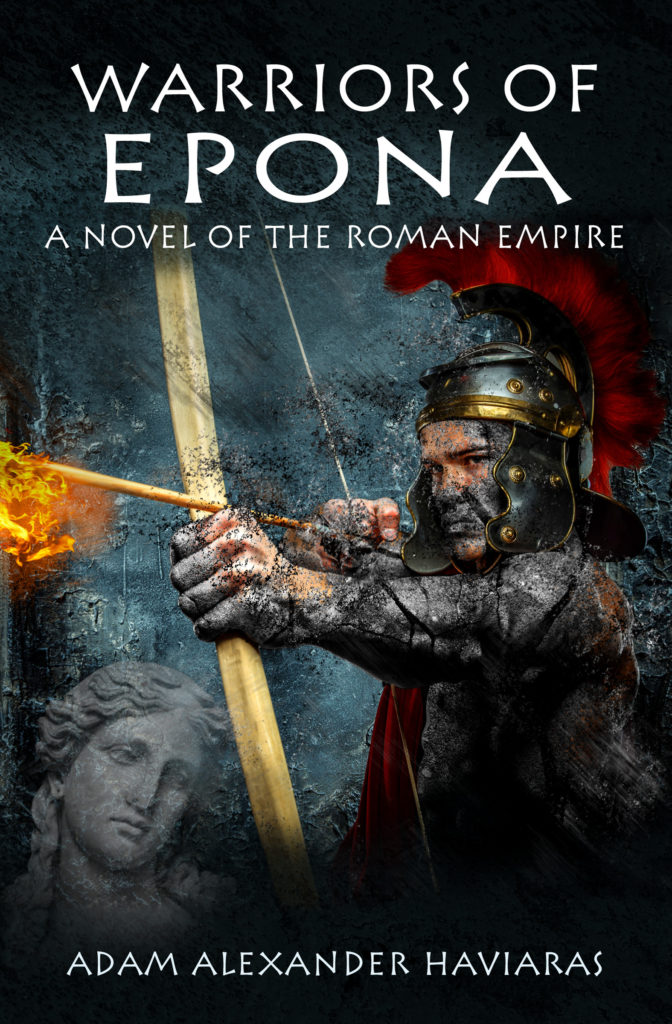
Warriors of Epona (Eagles and Dragons – Book III) is out now!
To pique your interest, here is the synopsis of this new adventure with Lucius Metellus Anguis:
At the peak of Rome’s might a dragon is born among eagles, an heir to a line both blessed and cursed by the Gods for ages.
It is the year A.D. 208, and Emperor Septimius Severus’ legions are set to invade Caledonia in an effort to subdue the rebellious tribes north of Hadrian’s Wall once and for all.
Ahead of the legions, the emperor has sent Lucius Metellus Anguis, prefect of an elite force of Sarmatian cavalry, to re-establish contact with Rome’s old allies and begin waging bloody war on the rebel tribes. As the guerilla war rages on the edge of the highlands, the legions, the imperial court, and Lucius’ own family draw nearer to the front he was commanded to secure.
With the help of his horse warriors, can Lucius snatch victory from the chaos and blood of war? Can he keep the family he has not seen in years safe? As Lucius is drawn into a mysterious world of violence and despair, he discovers that his greatest enemy may well be the one within.
Find out if the Gods will turn their backs on Lucius, or if they will pull him out of the darkness before it is too late…
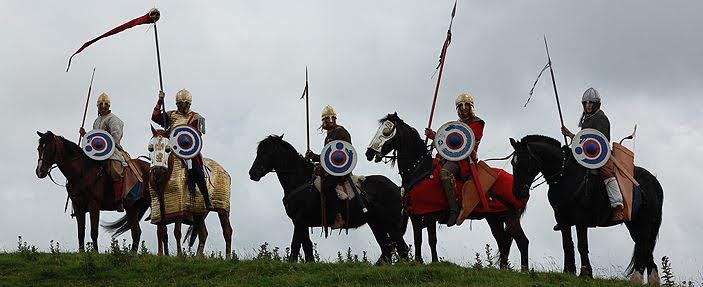
Roman Cavalry (Comitatus re-enactment group)
Stay tuned for Part II of The World of Warriors of Epona.
Thank you for reading.






